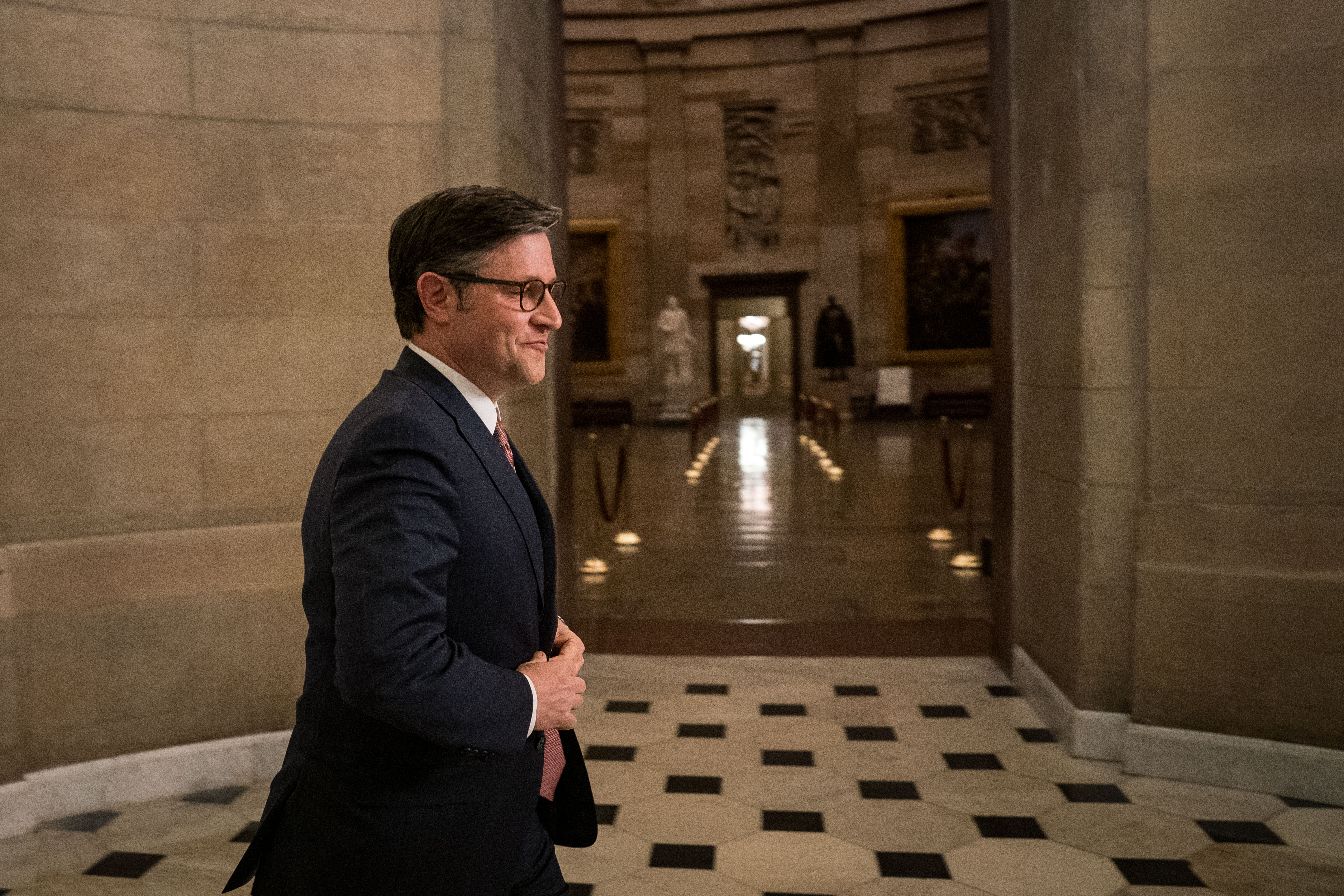Senate votes to advance stopgap spending bill as government shutdown deadline looms
Senate majority leader Chuck Schumer and House speaker Mike Johnson have reached a tentative deal to extend government funding into March – but it still needs to pass formal votes in both chambers
Your support helps us to tell the story
From reproductive rights to climate change to Big Tech, The Independent is on the ground when the story is developing. Whether it's investigating the financials of Elon Musk's pro-Trump PAC or producing our latest documentary, 'The A Word', which shines a light on the American women fighting for reproductive rights, we know how important it is to parse out the facts from the messaging.
At such a critical moment in US history, we need reporters on the ground. Your donation allows us to keep sending journalists to speak to both sides of the story.
The Independent is trusted by Americans across the entire political spectrum. And unlike many other quality news outlets, we choose not to lock Americans out of our reporting and analysis with paywalls. We believe quality journalism should be available to everyone, paid for by those who can afford it.
Your support makes all the difference.The US Senate has voted to advance a stopgap spending bill, as Congress hurtles toward Friday’s deadline to avert a looming government shutdown.
Senate majority leader Chuck Schumer and House speaker Mike Johnson have reached a tentative deal to extend government funding into March – but it still needs to pass formal votes in both chambers.
On Tuesday night, Congress took a key first step to passing the continuing resolution before Friday, with the Senate voting 68-13 to advance it.
Mr Schumer said on Tuesday that he expects the continuing resolution to be wrapped up “no later than Thursday”.
“If both sides continue to work in good faith, I’m hopeful that we can wrap up work on the CR no later than Thursday,” he said.
“The key to finishing our work this week will be bipartisan cooperation in both chambers, you can’t pass these bills without support from Republicans and Democrats in both the House and the Senate.”
The stopgap bill will extend government funding through to 1 March and 8 March, to allow for more time to pass longer-term funding.
The agreement sets a topline spending number of $1.59 trillion for the fiscal year and $69bn in “budget adjustments”, and will mark the third CR since 2023 funding expired in September.

However, if the continuing resolution fails to pass by the deadline of Friday 19 January, government funding will run out for some federal government agencies – and the government will partially shut down.
While Tuesday’s vote marks a key step in the right direction, there are still challenges to getting it over the line in both chambers.
In the House in particular, Mr Johnson is facing pushback from the far-right faction of the Republican party, namely members of the House Freedom Caucus.
“We’re making a statement that what the deal, as has been announced, that doesn’t secure the border and that doesn’t cut our spending, and that’s gonna be passed apparently under suspension of the rules with predominantly Democrat votes is unacceptable,” representative Bob Good, the Freedom Caucus’s new chairman, told reporters last week.
Several congressional Republicans pushed back against the Freedom Caucus’s reaction.
“If Republicans want to snatch defeat from the jaws of victory in the election this year, fail to fund the government,” Republican Senator Thom Tillis said, according to Punchbowl News.
Representative Garret Graves also said he’s sticking with Republican leadership.
“You’ve got a number of people that have no legislative track record, no legislative wins, that are out there trying to dictate strategies that have repeatedly resulted in less conservative outcomes,” he previously told The Independent. “I think that if then a better path forward is actually following game plans and strategies that have resulted in wins that have resulted in conservative wins.
Much of the battle surrounding 2024 government spending has been about immigration, with some House Republicans demanding that congressional Democrats agree to tougher border policies.
President Joe Biden and Mr Johnson spoke on the phone on 10 January regarding border security, White House press secretary Karine Jean-Pierre said.
Congressional officials released the full text of the resolution on Sunday evening.
“Last week, House Republicans achieved an improved topline agreement that will finally allow the House and Senate to complete the annual appropriations bills,” Mr Johnson said in a statement.
Senate minority leader Mitch McConnell and House minority leader Hakeem Jeffries were also involved in discussions on the CR, Mr Schumer said in a statement, as he hailed it as a “bipartisan topline funding agreement” that will ensure “that America will be able to address many of the major challenges our country faces at home and abroad”.

Join our commenting forum
Join thought-provoking conversations, follow other Independent readers and see their replies
Comments